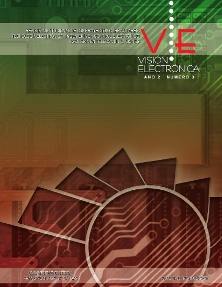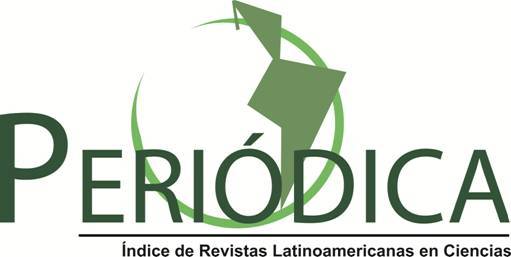DOI:
https://doi.org/10.14483/22484728.18418Publicado:
2019-03-13Número:
Vol. 2 Núm. 1 (2019): Edición especialSección:
Visión de CasoDesign of a full mesh network for non-interconnected zones (NIZ)
Diseño de una red full mesh para zonas no interconectadas (ZNI)
Palabras clave:
Full Mesh Network, Non-interconnected zone, TIC, Self-sustaining (en).Palabras clave:
Red Full Mesh, Zona no Interconectada, TIC, Auto-sostenible (es).Descargas
Resumen (en)
In Colombia, in spite of technological and social advances, NIZ still exists in the national power grid; in adition that, in the third quarter of 2018, Internet penetration in the country was only 62%. In addition, it is institutionally found that the Mining and Energy Planning Unit -UPME- (by its acronym in Spanish) and the Institute of Planning and Promotion of Energy Solutions for the NIZ -IPSE- (by its acronym in Spanish) both entities attached to the Ministry of Mines and Energy, had to redirect their functions in order to identify, promote, foster, develop and implement effective energy solutions. The above motivated the present investigation -whose results are described in this paper - with the fundamental objective of mitigating two shortcomings: electrical interconnection and internet connection in villages and municipalities of NIZ located in Caquetá department. Consequently, a full mesh network connected to Internet is designed and simulated at one of its points, together with a photovoltaic system to supply these electrical energy nodes. The measurement results of the parameters on the nodes allow the proper selection of high throughput radio links, providing Internet access for training purposes, education and trade opening, in rural NIZ.
Resumen (es)
En Colombia, a pesar de los avances tecnológicos y sociales, aún existen ZNI a la red eléctrica nacional; a esto se adiciona que, en el tercer trimestre del año 2018, la penetración del internet en el país fue de apenas del 62%. Además, institucionalmente se encuentra que la Unidad de Planeación Minero Energética –UPME- y el Instituto de Planificación y Promoción de Soluciones Energéticas para las ZNI –IPSE- ambas entidades adscritas al Ministerio de Minas y Energía, debieron reorientar sus funciones con el objeto de identificar, promover, fomentar, desarrollar e implementar soluciones energéticas efectivas. Lo anterior motivó la presente investigación -cuyos resultados se describen en este artículo- con el objetivo fundamental de mitigar dos falencias: interconexión eléctrica y conexión a internet en veredas y cabeceras municipales de ZNI ubicadas en el departamento de Caquetá. En consecuencia, se diseña y simula una red full mesh conectada a internet en uno de sus puntos, junto con un sistema fotovoltaico para abastecer estos nodos de energía eléctrica. Los resultados de la medición de los parámetros sobre los nodos permiten seleccionar adecuadamente radio enlaces de alto throughput, proporcionando acceso a internet para propósitos de capacitación, educación y apertura de comercio, en ZNI rurales.
Referencias
I. Hernández, "Unos 20 millones de colombianos no tienen acceso a Internet", 20 de marzo de 2019. https://www.rcnradio.com/tecnologia/unos-20-millones-de-colombianos-no-tienen-acceso-internet
IPSE. “Inversiones Fondo FANIZ”, Julio de 2019. [En línea]. Disponible en: http://www.ipse.gov.co/proyectos/faNIZ-estado
E. A. Mendoza Mazo, W. J. Guerra Peinado, G. Mancilla Gaona, “Experiencias en redes digitales comunitarias: caso Buenos Aires libre”, Visión electrónica, vol 11, no. 2, pp. 211-221, 2018. https://doi.org/10.14483/22484728.14629
MinTic. (s.f.). Obtenido de Wifi Gratis Colombia: http://www.wifigratis.gov.co/
L. Pedraza, C. A. Gómez, and O. Salcedo P., “IMPLEMENTACIÓN DE RED INALÁMBRICA COMUNITARIA PARA CIUDAD BOLÍVAR”, Vis. Electron., vol. 6, no. 2, pp. 46-57, 2012. https://doi.org/10.14483/22484728.3885
AlaOrilladelRío, " Caquetá tiene una tasa de pobreza mayor al total nacional ", Agosto 8, 2016. http://alaorilladelrio.com/2016/08/08/en-caqueta-el-413-de-los-habitantes-son-pobres/
SAYEGH, Amir A.; GHOSH, Sasthi C.; TODD, Terence D. Optimal node placement in hybrid solar powered wlan mesh networks. IEEE Wireless Communications and Networking Conference. IEEE, 2008. p. 2277-2282. https://doi.org/10.1109/WCNC.2008.402
VARGAS, Enrique J.; SAYEGH, Amir A.; TODD, Terence D. Shared infrastructure power saving for solar powered IEEE 802.11 WLAN mesh networks. En 2007 IEEE International Conference on Communications. IEEE, 2007. p. 3835-3840. https://doi.org/10.1109/ICC.2007.632
ZEFREH, Mohammad Sheikh; BADAWY, Ghada H.; TODD, Terence D. Position aware node provisioning for solar powered wireless mesh networks. En 2010 IEEE Global Telecommunications Conference GLOBECOM 2010. IEEE, 2010. p. 1-6. https://doi.org/10.1109/GLOCOM.2010.5683196
LigoWave. (2015). Datasheet Ligo PTP 5N
Nenotix. (2018). Spec sheet Nenotix.
Mikrotik. Datasheet RB3011UiAS-RM.
BADAWY, Ghada H.; SAYEGH, Amir A.; TODD, Terence D. Energy provisioning in solar-powered wireless mesh networks. IEEE Transactions on Vehicular Technology, 2010, vol. 59, no 8, p. 3859-3871. https://doi.org/10.1109/TVT.2010.2064797
NASA. (s.f.). Power Single Point Data Access. https://power.larc.nasa.gov/data-access-viewer/
Cómo citar
APA
ACM
ACS
ABNT
Chicago
Harvard
IEEE
MLA
Turabian
Vancouver
Descargar cita
Licencia
Derechos de autor 2019 Visión electrónica

Esta obra está bajo una licencia internacional Creative Commons Atribución-NoComercial 4.0.
.png)
atribución- no comercial 4.0 International






.jpg)





